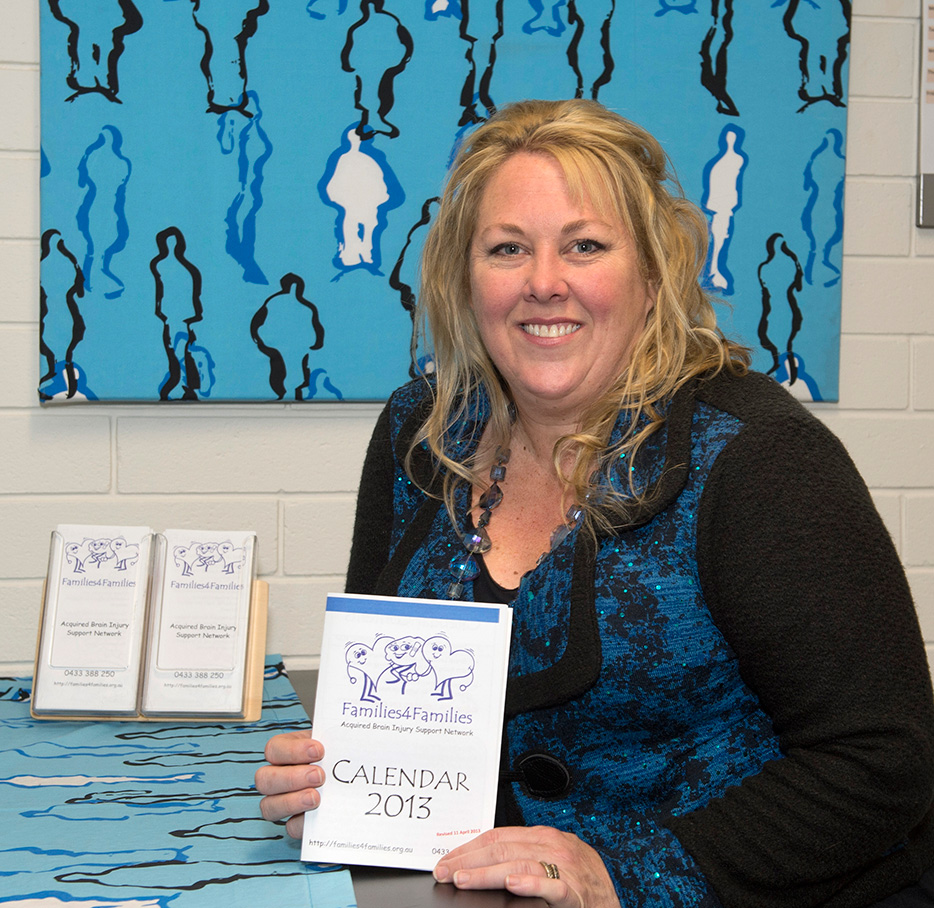Stronger support for people with brain injury

Families living with an acquired brain injury in South Australia are finding solace in a new peer support network developed by researchers from Flinders University.
Funded by the Julia Farr MS McLeod Benevolent Fund, the Families4Families ABI Peer Support Network is an 18-month pilot program for adults with acquired brain injuries and their families.
The program aims to connect families affected by acquired brain injuries and give them the opportunity to share their experiences, positive coping strategies, adaption skills and understanding of systems while also broadening their social networks.
Figures shows acquired brain injury (ABI) is a significant cause of disability in South Australia, with about 31,000 people living with an ABI in the state and 4,000 new cases per year.
Families4Families ABI Peer Support Network project manager Dr Jennifer Farnden (pictured) said the network – which has now grown to 200-plus families across seven support groups SA-wide – provides both practical and emotional support through regular group meetings, social and recreational activities, online and phone support.
“We don’t just sit around a circle for morning tea and talk about our history, although we do that too, it’s also about giving people the chance to learn about how the system works and how they can better access the services they need,” Dr Farnden said.
“We cover a range of topics in our meetings, from what an ABI actually is and what happens when you have one to changes in disability funding and what forms to fill out – it’s very practical as well as emotionally supportive.”
The network was established earlier this year following a study led by Dr Michelle Bellon from Flinders Disability and Community Inclusion Unit into the needs of families with ABI, which was initiated by Dr Farnden based on her personal experiences as a carer.
Of the 271 respondents who participated in the survey and five focus groups in 2012, the overwhelming majority indicated they wanted more support for the entire family.
Stay informed, daily
“When my husband acquired a brain injury five years ago through a motor vehicle accident I was struck by the fact there were no support groups in the state – I found it very difficult to get support for myself as a carer and for my children,” Dr Farnden said.
“On the off chance I did meet other carers experiencing ABI I found it really helpful so I started looking into it and that’s when we began the study at Flinders University.
“The biggest thing to come out of the research was that like myself, people wanted more emotional support for their partners, children and wider family.
“While there is a peak body representing ABI, it tends to focus more on systemic issues and supporting professionals so it would be great to have something like the Families4Families network permanently in place to support the people who live with ABI day in, day out.”
Read more Flinders disability-related news: Epilepsy discrimination still rife, Flinders helps build high-tech assistive housing, Social media for rural teens with disability.
Want to see more stories from InDaily SA in your Google search results?
- Click here to set InDaily SA as a preferred source.
- Tick the box next to "InDaily SA". That's it.








